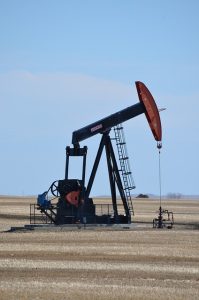
Journey of Crude Oil : Ground to Everyday Life
Crude oil is a fundamental resource that fuels much of modern civilization. This is related to the growth of nations. Its journey from the ground to various aspects of our daily lives is intricate and far-reaching. Understanding this journey is crucial for energy enthusiasts and anyone relying on modern life’s conveniences.

Why is it Important to Know?
Understanding the journey of crude oil is vital for several reasons. Firstly, it helps us appreciate the complexity of energy production and consumption. Oil is more than just gasoline for our cars; it is the backbone of various industries, from plastics to pharmaceuticals. By grasping the entire process—from extraction to end-use—we can better comprehend the implications of our energy choices, environmental impacts, and economic dependencies.
Additionally, awareness of this journey empowers consumers. In a world increasingly concerned with sustainability, knowing where our energy comes from can guide us toward more responsible decisions. As we navigate discussions on climate change and energy policies, having a solid understanding of crude oil’s journey can make our contributions more meaningful.

How It Impacts Our Life
Crude oil has a profound impact on nearly every facet of our lives. It is a primary energy source, powering vehicles, heating homes, and generating electricity. Beyond its energy applications, crude oil is a raw material for countless products. Plastics, fertilizers, synthetic fibers, and even medicines often derive from oil.
Consider the everyday items you use: the plastic bottle holding your water, the synthetic fabric in your clothes, the tires on your car—all have roots in crude oil. This interconnectedness illustrates our dependence on oil, making it essential to acknowledge its influence on our economy, environment, and lifestyle.

Journey Description: From Well Head to Cars, Plastics, and More
The journey of crude oil begins deep underground, where geological processes have transformed organic matter into hydrocarbons over millions of years. Extraction typically starts at the wellhead, where drilling technology is employed to reach these reserves. Once extracted, crude oil undergoes several processes before it becomes our daily products.
Extraction: The first step involves drilling into the Earth’s crust to access oil reservoirs. This process can be complex and risky, requiring advanced technology and substantial investment.
Transportation: After extraction, crude oil is transported to refineries via pipelines, tankers, or rail. This transportation stage is critical, as it can significantly affect the cost and environmental impact of oil.
Refining: At refineries, crude oil undergoes distillation and other chemical processes to separate it into various components. This is where gasoline, diesel, jet fuel, and other products are produced. The refining process is energy-intensive and generates emissions, highlighting its environmental footprint.
Distribution: The refined products are then distributed to gas stations, manufacturers, and other outlets. Gasoline is transported to service stations, while other derivatives, like plastics, are shipped to factories for further processing.
End-Use: Finally, oil-derived products make their way into our lives. Gasoline powers our cars, diesel fuels trucks, and heating oil warms our homes. Meanwhile, plastics are used in everything from packaging to medical devices, showing just how embedded oil products are in our daily routines.
Is Transition from Oil Possible Completely?
The question of whether a complete transition from oil is possible is complex and multifaceted. While the urgency to reduce reliance on fossil fuels is evident—due to climate change concerns and environmental degradation—the reality is that a total transition may take time and require significant shifts in technology, infrastructure, and consumer behavior.
Renewable energy sources like solar, wind, and hydroelectric power are gaining traction and could eventually replace oil in many applications. Electric vehicles (EVs) are becoming more popular, and advances in battery technology may pave the way for a future with fewer oil-dependent cars. However, certain sectors, such as aviation and heavy industry, still heavily rely on oil and may require alternative solutions or significant innovation to transition fully.
Moreover, the global economy is intricately tied to oil production, and many regions depend on it for economic stability. A gradual and thoughtful transition—balancing economic, social, and environmental considerations—will likely be the most feasible approach.

Conclusion
Crude oil’s journey from the ground to our daily lives underscores its significance in modern society. Understanding this journey highlights our reliance on oil and prompts important conversations about sustainability and future energy sources. While a complete transition from oil is a complex challenge, awareness and innovation are key. As we navigate this critical juncture in energy consumption, being informed can empower us to make choices that contribute to a more sustainable future.